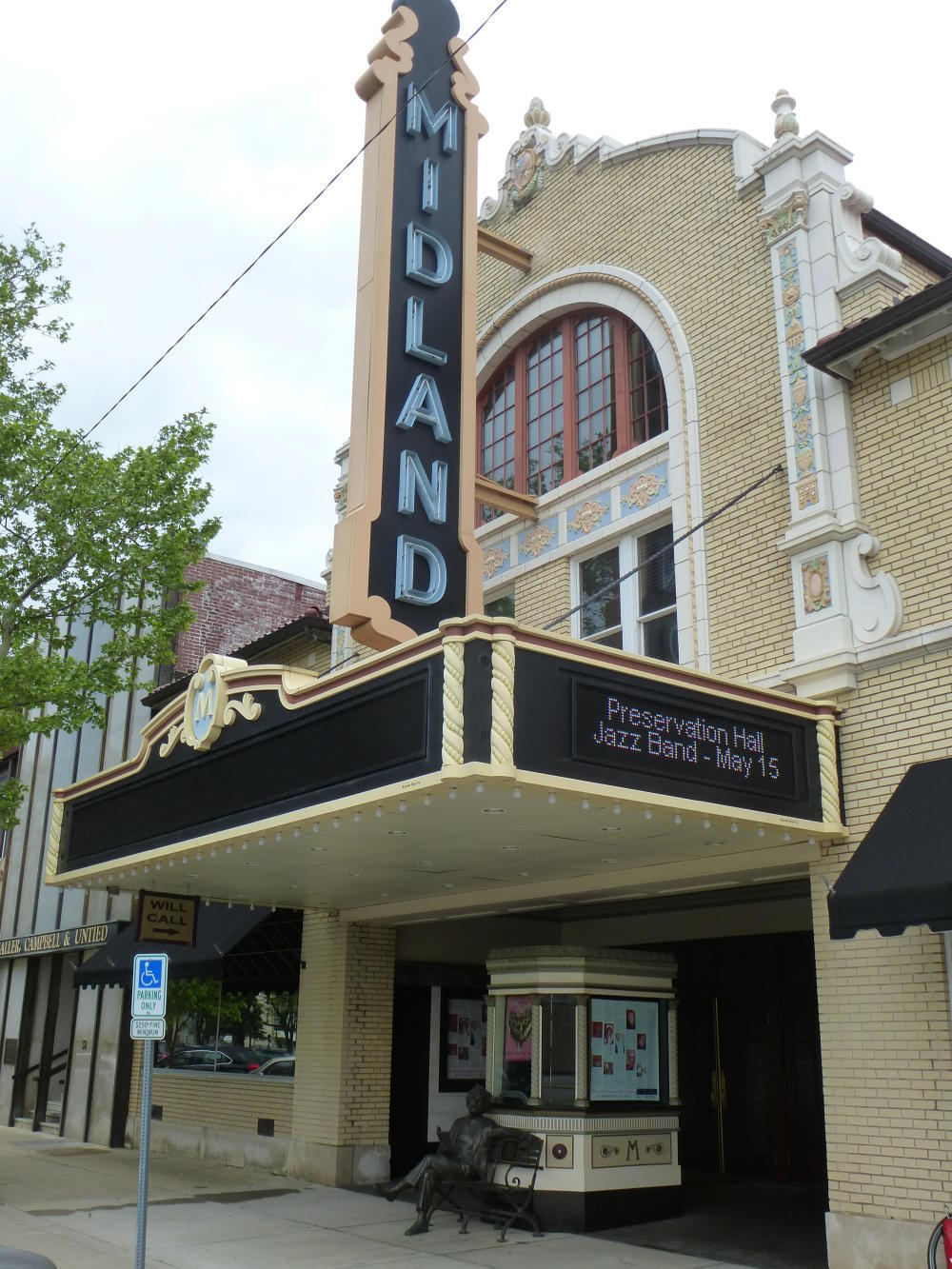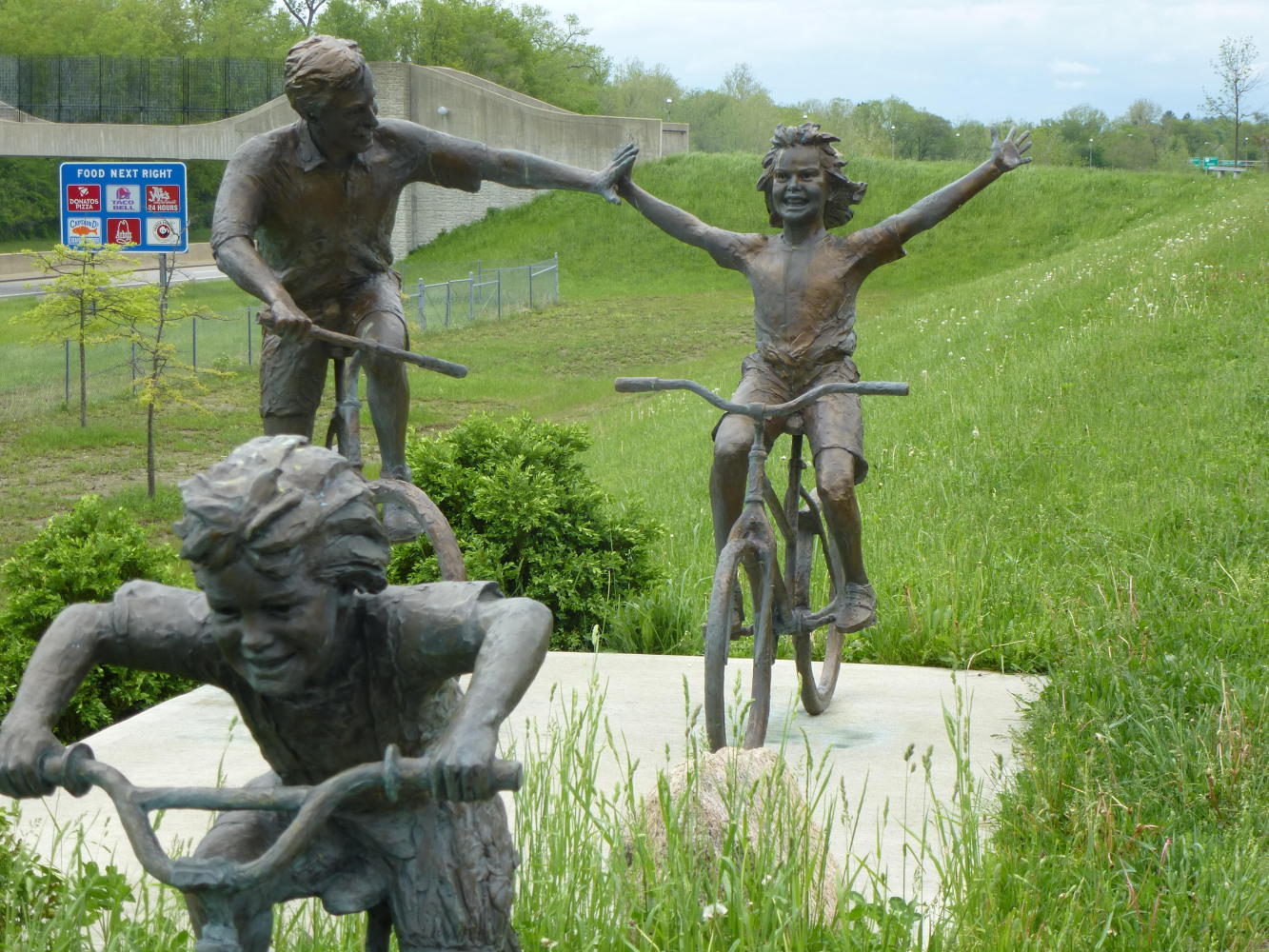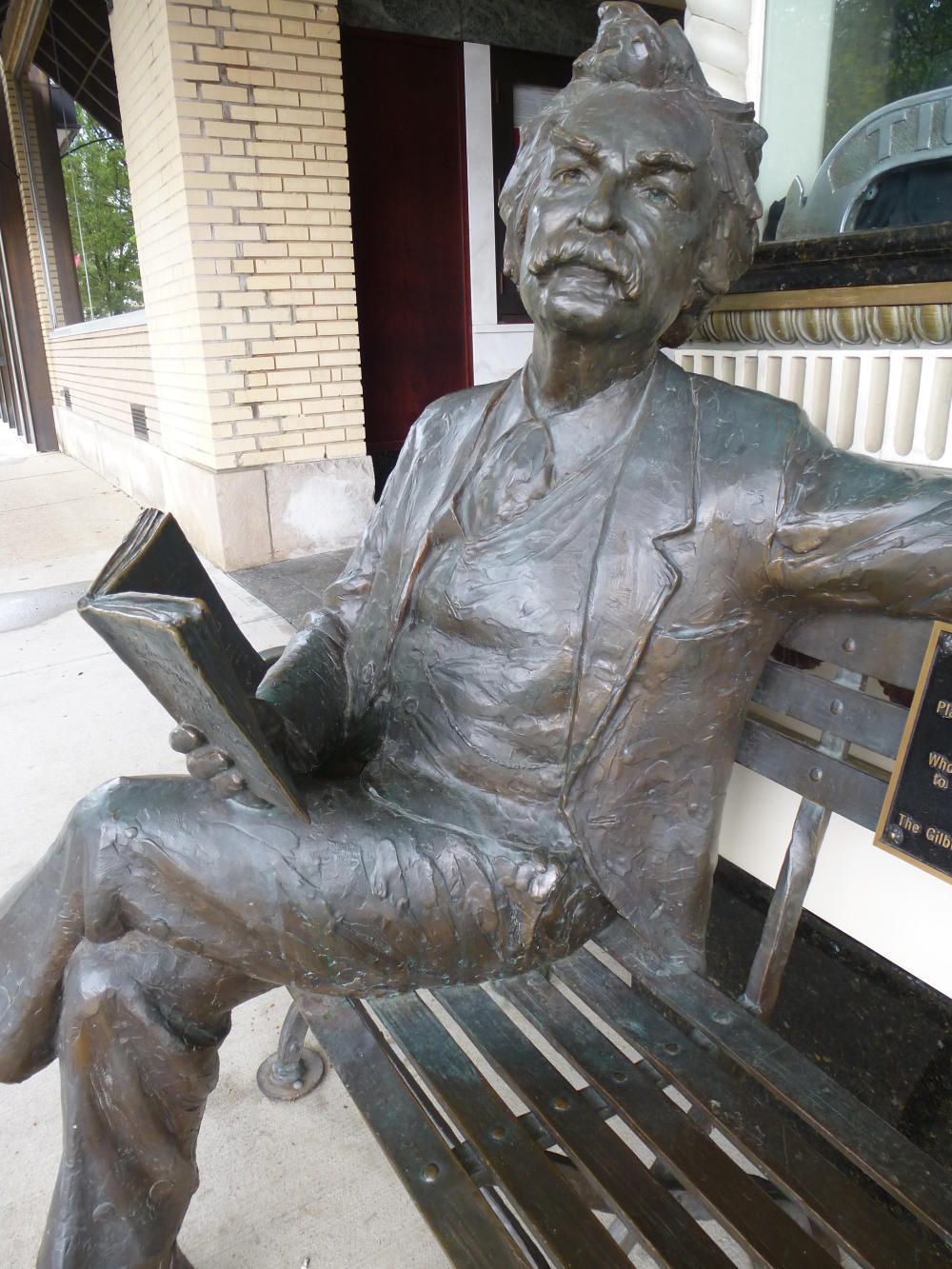May 15, 2014
West Lafayette to Newark
"WELL THERE'S the old 406 heading to 102, you think...?"
"No, 102 ends at 536 and you used to use the 80 but that comes back on to the 16."
I listened in bewilderment. I happened to be riding past the Ohio Department of Transportation and I thought that, if anyone knew how to avoid the busy main highway to Newark, they would. And, sure enough, burly men in yellow jackets and sturdy boots knew every single road from here to, well, I suppose to Illinois. And the number of each of those roads.
So before long it became a test of manliness to come up with the quietest but most convoluted way to get to Dresden, a city I thought had been flattened by wartime bombing but which today held the hope of some distant paradise.

| Heart | 0 | Comment | 0 | Link |
"You'll be OK after you get to Dresden," they all agreed, but on everything else they agreed on nothing at all. Except, in the end, that it couldn't be done. Not without going the long way round.
The long way round wasn't flat, of course. It took me through Coshocton, surely the most signposted place of its size in America, on the shoulder of a busy road on which, at every traffic light, men would lean across their wives and shout "You look like you're on a pretty long ride there, fella" and "Bet you get great gas mileage outta that thing, doncha?"
And I eventually I took a minor road to the north that set off into the hills like a Himalayan Sherpa, but with me carrying all the bags. It rained again, of course, but the venture was yet another to confirm that you don't get the best out of cycling by staying on the flat roads and that the weather, however unpleasant, can add character to the day.
I can't even remember where it was that I came into a village and into its crossroads store just as the heavens really opened. Until then I'd climbed and dropped over and over, finally emerging on a plateau that could have passed for mountain moorland. Struggling short grass went off in both directions and birds flew low and rabbits looked up puzzled and then ran off and the valley fell to my left and the trees took on a marked darkness as though they'd all lived through a fire.
"The store is up for sale from today," a hand-written sign announced on the shop door, giving a date a few days earlier.
"I just want a normal job," the spreading woman in charge said as she sat at her computer playing and losing small sums on an internet numbers game. "I just want to work maybe three days a week, and normal hours, and not six days a week, 12 hours a day, like here, with all the ordering and book-keeping to do."
I confess I may have got her work hours wrong but that was about the size of it.
"And what will you do with yourself when you've got time on your hands?", I asked, hoping she'd say that the devil would find her work. That's what I'd like if I had time on my hands. But instead she said: "I'd like to run a bible class, a study group. We could do it in the shop but it's not really the place, what with all the customers and the phone going."
Every time the front door opened, a strangled electronic voice said: "Front... door..."
I pointed to the racks of goods next to where I was sitting, with a coffee and one of her home-made meat rolls, at the back of the shop.
"Doesn't give quite the right atmosphere, either, does it, thinking about prayer when you've got shelves of radiator cleaner and tyre black alongside you, does it?"
We talked for a moment about a faded wall map of The Bible Lands Today that stood, mounted on battered card propped against a table. She looked at the date on a small square of black type in one corner.
"1956," it says.
And we might have concluded that that was the point at which conversation had faltered had Brad not walked in with a "Hi, good-lookin', how're you today?" and then, spotting me dripping lightly at the table, "And good morning to you, too, sir."
The shop woman signalled behind his back that he couldn't hear well, that I'd have to shout. But he could talk well, and I discovered how he was in his 80s, had lived in the area for 20 years, and how he had been a civilian, working for Honeywell, sailing with the navy and putting its computers right as he went.
"Great time, that was," he said, "seeing the world at someone else's expense and going to interesting places. And being a civilian, I used to have an open gangplank, so I could get off the ship ahead o' the sailors and before they could create a bad reputation everywhere.
"Well, you're mebbe the same, too, but I have an aversion to chain restaurants. You don't meet the real people if you go there. You have to go where the real people eat, and so I'd go ashore and I'd get a taxi and I'd say 'Take me to the gunk'..."
I think he said gunk. If not, it was something like it, a word he said meant everywhere in the world that he wanted a bit of honest low-life where he'd be the only foreigner around.
And so we sat and chatted and he had a talent for making computers interesting and I pointed out that I had more computing power on the handlebars of my bike than had existed on the face of the planet when my father was born. He didn't understand and so he came outside to look at the little computer that told me, as it would tell every cyclist, how far I'd ridden, how fast and how high, plus a lot of things I've never troubled to use.
"Gee, that's pretty neat," he said. "I didn't know about those things."
I said he sounded like Tommy Flowers, who built the world's first re-programable electronic computer but had never been acknowledged because of the secrecy that surrounded the decoding of German Enigma signals at Bletchley Park, north of London.
Decades later, the man who had invented the modern computer and then seen it destroyed, along with the plans, because Churchill feared it would be discovered by the Russians, was given a little laptop computer by his family. And he had no idea how to use it. In his day, computers had filled an entire room and faltered every time the door opened.
So he signed on at an evening class, this man then around 90 years old. People thought that remarkable enough, of course, but then someone who knew about these things looked at his application form and linked "Thomas Flowers" with his date of birth and said, rather humbly: "You wouldn't be...?"
Flowers, who built that first computer with his own money because Churchill refused to give him any, got just a couple of hundred pounds in thanks when the war was over - money he gave largely to those who worked with him - and then nothing but the anonymity of a secrecy he respected until his last days. There's a plaque to him now, but nothing else.
So we chatted about Flowers, and about Alan Turing who preceded him and who cycled everywhere in a gas mask, and then the rain eased off and I rode a rising and falling road which descended slowly into Newark and the end of a delightful day.
Sometimes the harder, less obvious way is the most rewarding, don't you think?
Today's ride: 93 km (58 miles)
Total: 988 km (614 miles)
| Rate this entry's writing | Heart | 2 |
| Comment on this entry | Comment | 0 |

